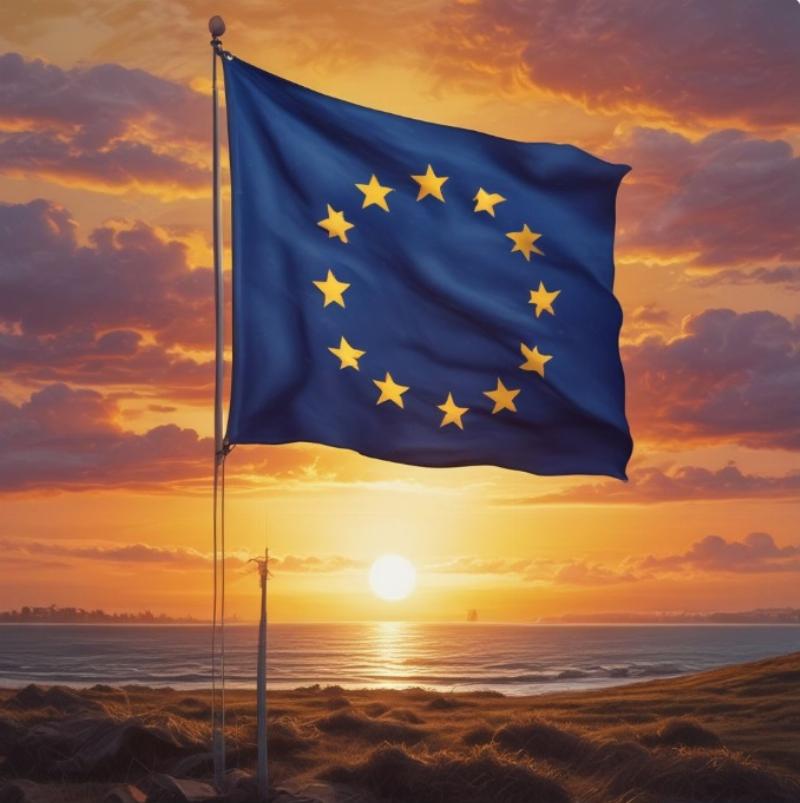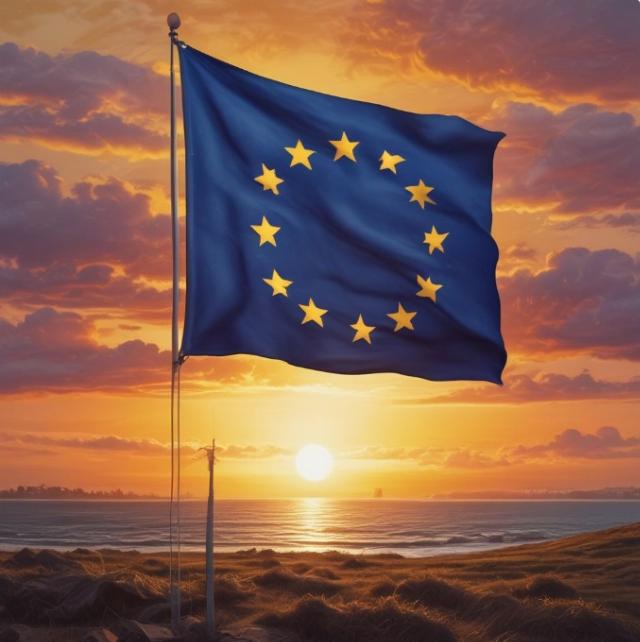


Shock turns into outrage. Europeans feel they’ve been duped by Donald Trump. But the trade deal merely lays bare the EU’s accelerating loss of power.
Anyone familiar with German politics has long known that Ursula von der Leyen, President of the European Commission, is no political heavyweight. Her record as Germany’s family and defense minister speaks for itself. She lacks the intellectual and strategic abilities to navigate or reform complex systems.
Yes, she was outplayed by Trump during the trade negotiations -- as expected. But this misses the point. What Europeans are loudly lamenting is not just a bad deal, but the expression of their own geopolitical weakness. Von der Leyen went to Scotland empty-handed -- and she had no choice but to return that way.
Europe’s Hour of Complaint
Hangover time in Europe’s green climate fantasyland. Accusations of submission, disastrous negotiations, and economic doom dominate the headlines. German Chancellor Scholz warns of massive challenges for the German economy.
Guy Verhofstadt, ex-Belgian PM and media darling, calls it a scandalous negotiation and a catastrophe for Europe. France’s Prime Minister François Bayrou describes it as a dark day, one where a union of free peoples chose submission.
Europe is stunned by Trump’s tough negotiation tactics and the ruthless way in which the U.S. seeks to solve its trade deficit and deindustrialization problem.
Welcome to the World of Realpolitik
In this world, there are no friends -- only strategic interests. And no one will continue submitting to Europe’s climate mandates, now that the U.S., through this trade deal, has effectively declared a second independence from Brussels.
What happened Sunday in Scotland was precisely that: America’s emancipation from Eurocratic control.
The EU’s dramatic reaction reveals that the penny is finally dropping -- and it’s time to dispel some long-held illusions about transatlantic relations.
Two Foundational Misconceptions
First: the idea that America has long dominated Europe through imperialist policies. On the contrary, U.S. administrations under Biden and Obama closely followed a globalist agenda in European style.
Together with their allies in Brussels, London, and Davos, they implemented destructive climate agendas, pursued inflationary monetary policy, and built welfare states modeled after Europe.
The roots of this lie 100 years back in Roosevelt’s New Deal. America has never been fully free of European influence.
Second: the belief that the EU is a freedom project committed to market principles and private property. The EU was founded as a bulwark against the Soviet empire, but from the start, it was statist in nature -- especially under Franco-German leadership.
Criticism of its socialist trajectory is still branded as conspiracy theory. But the facts speak clearly: Over 50% government spending ratios, Brussels' war on free speech, energy sector nationalization, suffocating regulation -- Europe is hurtling toward a new socialism.
The reason this isn’t more widely recognized? Mainstream media have done a masterful job of covering it up.
They act as cheerleaders for the green climate-socialist agenda, masking Europe’s collapse in idealistic brushstrokes.
America Takes a Different Path
 By electing Donald Trump, the U.S. chose another route. That’s clearest in the much-discussed “Big Beautiful Bill,” a package of deregulation and tax cuts.
By electing Donald Trump, the U.S. chose another route. That’s clearest in the much-discussed “Big Beautiful Bill,” a package of deregulation and tax cuts.
European media pounced like a pack of drunk wolves on Elon Musk’s criticism that it lacked deep spending cuts.
But this misses the point. The bill does much more: from border security to energy deregulation, it reshapes U.S. policy for years to come.
Budget cuts will become visible starting in October with the new fiscal year. Social spending is already dropping significantly.
With 3% economic growth, tax revenues are stabilizing. Much to the dismay of EU officials, the narrative of U.S. fiscal collapse won’t hold.
The U.S. is not bankrupt. Demand for Treasury bonds remains strong. Brussels, Berlin, and London will need a new excuse for their own debt crises. The U.S. default won't bail them out.
An Independent Capital Market
While Germany plunges deeper into debt, the U.S. is creating a sovereign capital market.
As Europe clings to its digital euro to wall off capital, the U.S. moves ahead with private stablecoins, a strict rate regime, and a collateralized interbank market (SOFR).
Dollar credit now has a U.S.-defined price. The Eurodollar market, once used to artificially lower credit costs, is over.
This shift will pay off in crises. The Fed holds all the levers -- setting swap line prices, using the dollar as a geopolitical weapon.
Zero interest rates, QE, and cheap money for political whims are history. So is the Green Deal.
Green Deal is Dead
EPA chief Lee Zeldin just announced CO2 would be removed from the list of hazardous pollutants, smashing the “man-made climate change” narrative and opening space for debate.
Predictably, Europe’s climate zealots had a meltdown. But Zeldin’s move clears the way for massive energy deregulation and investment -- undoing the damage of the Obama-Biden years.
The U.S., already the world’s largest oil exporter, becomes an energy superpower, pushing dependent Europe further into vulnerability.
France’s African uranium, Europe’s Middle East ties -- all of it is slipping away.
Blow to the Media Machine
Then came another bombshell: the Trump administration cut public funding for USAID, the global sponsor of left-leaning media and NGOs.
Brussels knows what’s at stake -- lose U.S. media backing, and they lose control of the narrative.
America is returning to its traditional role as a free speech champion.
That’s good news for EU citizens resisting Brussels’ censorship machine. With the Digital Services Act and UK’s clampdowns, free expression is under siege. Any help is welcome.
Cracks in the Edifice
The media firewall is still standing -- but cracks are forming.
The Eurozone loses €110 billion in direct investment to the U.S. annually.
And while France, Germany, and Southern Europe dig themselves deeper into debt, hundreds of thousands of young Europeans are fleeing.
Germany, once the anchor of EU capital markets, is now drowning in debt.
This is more than a domestic failure -- it threatens the EU’s entire debt financing structure.
Blaming the U.S. for Europe’s decline is dishonest. It’s a diversion -- and we must not let them get away with it.
It’s time for real reform.
Image: AT via Magic Studio
